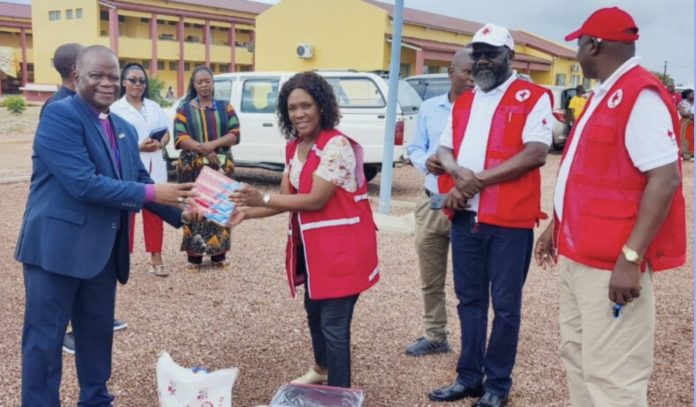
Church leaders in Madagascar, Malawi and Mozambique have continued to help the victims of Tropical Cyclone Freddy since it struck in late February, killing more than 600 people and displacing thousands of others.
However, police and authorities say the death could exceed 1,200 in Malawi and other countries as the hope of finding survivors dwindle daily. The search operations with sniffer dogs have been going on to try and find more bodies in the rubble.
The deadly storm landed first in Madagascar on 21st February and moved towards southern Mozambique on 24th February. It spent several days bringing heavy rain and floods in the two countries before moving back across the Indian Ocean. On 11th March, the cyclone moved to southern Malawi, affecting 14 regions.
The cyclone, which has been taunted as one of the longest and deadliest, has flattened homes, destroyed crops, swept away anything on its way, including roads and bridges, and damaged telecommunication and infrastructures, including schools, hospitals, markets, and churches.
“We were sleeping only to realise the flood was sweeping away our house. I woke up quickly, and I couldn’t save anyone. Everyone was trying to run and save themselves from the raging flood. We tried to run, but water swept some of my children and neighbours.”
– Moses Mvula, a resident of Zomba in southern Malawi.
Moses Mvula, a resident from Zomba, a city in southern Malawi, said he lost his two children in the middle of the night when water erupted from the ground and the mountain and swept his house and all his animals away.
“We were sleeping only to realise the flood was sweeping away our house,” said the father of five by phone from southern Malawi, where he is taking refuge with his family in a church compound. “I woke up quickly, and I couldn’t save anyone. Everyone was trying to run and save themselves from the raging flood. We tried to run, but water swept some of my children and neighbours.”
Mvula, 48, who owned an electronic shop in Zomba, said he lost everything to flooding water, including his livelihood, and appealed to wellwishers to intervene and assist them with relief items.
“We are really suffering here because we have no food, clothes, or bedding,” he lamented. “There are also no medicines in case someone falls sick. We are also worried about contracting cholera because we don’t have clean drinking water, and human feces are everywhere.”

Young boys carry plastic as they look for items to salvage from the Nasolo river in Ndirande township in Blantyre, Malawi, on 15th March, 2023. PICTURE: Reuters/Eldson Chagara
The situation has moved churches in the three countries to start raising money and collecting relief items from donors to assist victims of the heavy flood. The church leaders have also allowed the victims to seek shelter in churches as they find ways to resettle them elsewhere once the cyclone stops.
In Malawi, the Catholic Church and other denominations are providing food, shelter, clothes, medicine, and other relief materials for people affected by the cyclone.
Archbishop George Desmond Tambala, of the Archdiocese of Lilongwe in Malawi, said that since the cyclone hit the country on 11th March, his congregants and other people of goodwill have been raising money every day and especially on Sunday during the mass to ensure victims can receive essential items like food, clothes, shelter, and beddings.
“The mobilisation of resources is going on, and we urge everyone to stand with our brothers who are suffering as a result of the cyclone,” said Archbishop Tambala, noting that he had already mobilised priests from 46 parishes in Lilongwe, Malawi’s capital city, to raise funds during mass and send it directly to the response teams in the southern part of the country to help victims.
Read it all in Sight Magazine


